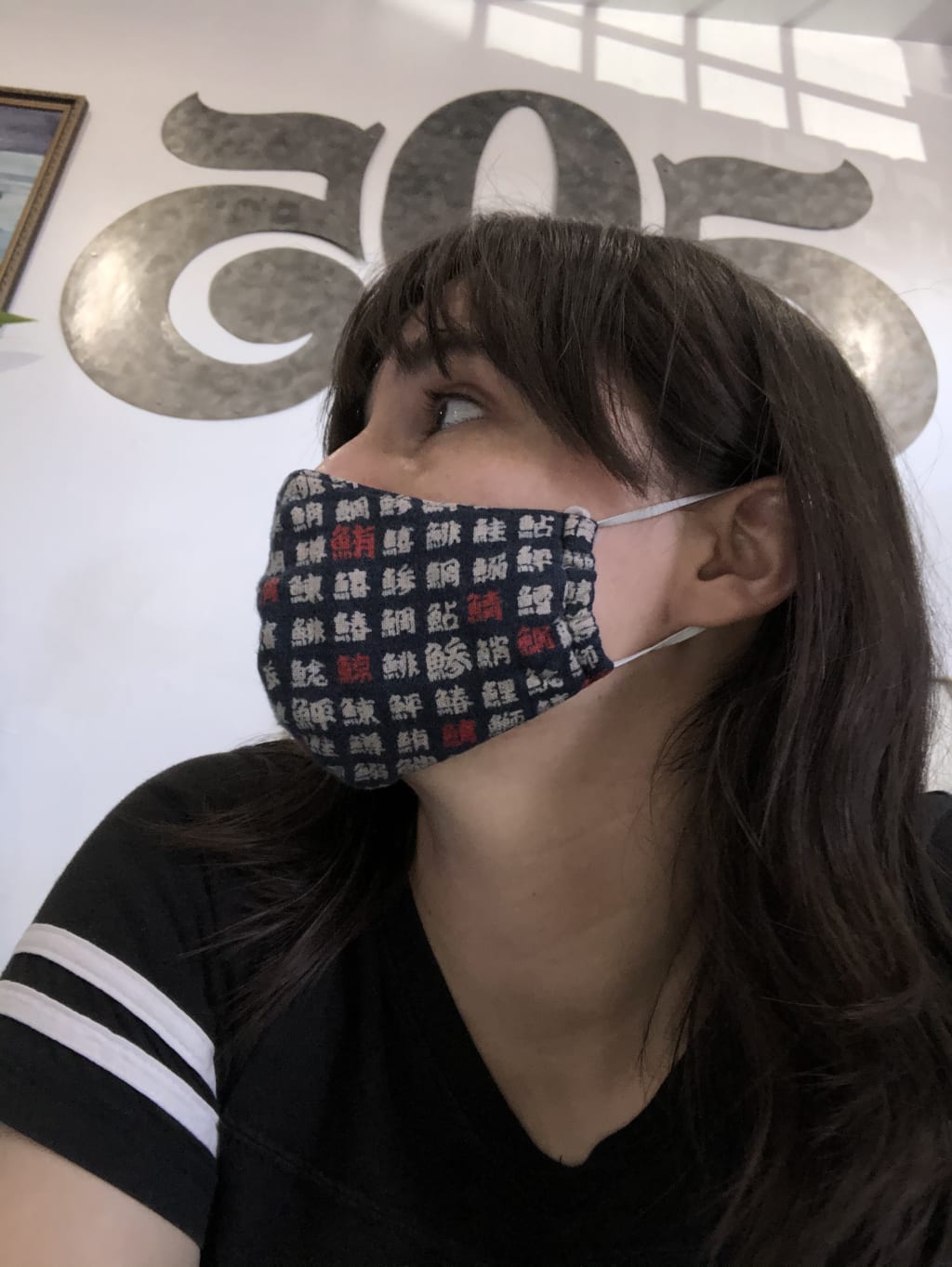What Six Years in Japan Taught Me About Different Cultural Reactions to a Pandemic
The mindset of a people.

The COVID-19 and Coronavirus pandemic has been the biggest blight of 2020 and its effects will probably be globally felt for years to come. 2020 also marked the end of my stay in Japan and the return to my hometown of Albuquerque, New Mexico, USA. My work visa was going to expire in July and my plans were to come back home after blowing a bit of my savings traveling around Japan and other parts of Asia. However, a warning from the American Government Travel website stating that, "Americans abroad should return home immediately, or be prepared to stay abroad indefinitely" and the rapid closing of countless borders compelled me to come home a good three months ahead of schedule. From the onset of the virus when I was living in Japan, to the development and distribution of a vaccine here in America, I've been able to witness the reactions of the Japanese and subsequently American people to the societal mandates by their respective countries in regards to the pandemic. I would like to expound on my experiences in both cultures and share my conclusions about the differences and similarities of their societies.
From the start of the pandemic in March I was working in a Japanese position at an online English teaching company. Compared to teaching at an international school, which is the position I was in before, at this job I had complete submersion in a Japanese work environment. So, I feel that it is a good standard to measure how Japanese people in general handled things as the world started taking more drastic defense measures to protect people's health and lives.
The first I heard of the Corona Virus was in our morning meeting at work when our kakarichou (person in charge) gave us the obligatory health and safety awareness talk. We were urged to be careful and to wash our hands and gargle frequently; both are common health practices in Japan. Despite being a very hot topic, there weren't many cases in Aichi prefecture, so most people were not very worried. When hearing of countries with high counts they would respond with a consoling, "Kowai ne." (It's scary, right?) The Japanese people in general tend to be very hygienic so the mandate for handwashing and gargling was carried out with no complaints. Gradually, the cases rose and the call for mandatory masks, daily temperature checks, frequent workplace sanitization, and social distancing were put into play. Much like in America, the supply of masks, sanitizer, gloves, and toilet paper quickly ran out as the first wave of panic buying hit. However, after a few weeks of controlled sales and increased stocking of said items, people relaxed and a new life rhythm with our newly emphasized practices came to be the less convenient norm. Still, most people I talked to didn't complain. It was now “attarimae” (the obvious thing). Up until the time of my departure when non-essential businesses were locked down, the mandated practices were already a very normal part of Japanese society.
The clean freak culture of Japan was already very sanitary. The standard form of greeting in Japan is the bow, no physical touch. When sick or suffering from allergies, masks were already being worn and were readily available in any store. Almost all the safety measures were to some degree already an integrated part of everyday Japanese life. Complaints of boredom due to business closure and concerns for the economy resounded in most conversations, but for the most part, the Japanese people would comply and understandingly say, "Shoganai" (It can't be helped).
The first of May rolled up and I finished my last day of work; it was time for me to leave Japan. Because of the lockdowns I couldn't say goodbye to many friends, but, "Shoganai." After passing through several eerily deserted train stations and airports I landed in the Houston international Airport. I was back in America! Of course, due to the government mandates, everyone was wearing masks, and it was a surprisingly comforting sight. I was very relieved that this part of Japanese culture, which was so normal to me, was being practiced by my own people. After the mandatory two weeks in self-quarantine purgatory upon returning, I moved into my grandparents’ home and began re-starting my life.
The first lockdown in New Mexico was coming to an end and I was able to find work serving at a New Mexican restaurant. The COVID-19 safe practices there were about the same, if not more rigid than in Japan. We sanitized pens, credit card books, tables, chairs and menus. Condiments were not left on the tables and we had strict group size restrictions. All workers had their temperatures taken and mandatorily wore masks. It wasn't anything new to me, so I didn't mind. However, due the conversational nature of my new job, it didn't take long for me to hear the many, many various opinions that other people held about the safety measures being enforced. The sheer disdain for mask wearing was the biggest issue. Though I was acclimated to wearing a mask, even I found that the altitude difference between Albuquerque and Nagoya made it difficult to breathe, so I wasn't surprised at the frequent complaining about it. I would frequently be asked, "Don't you hate wearing these masks all the time?" At which I would state my background in Japan and say that I'm used to it. The occasional displeasure at my compliance did confuse me however. I came to realize that in Japan what was considered “attarimae” behavior for everyone, was just one side of a political coin here in America.
The cautious Democratic party that declared the necessity of masks, social distancing, unessential business closures and other safety measures was being equally opposed by the Republican party. So then, in my interactions, some people would ask me to wear my mask and others would say that they didn’t care; some asked me to keep my distance and others would come right up to me without thinking; some stay at home as much as possible under self quarantine and others would go out and party like the pandemic didn't exist. Businesses, of course, complied in order to stay in business, but my managers would apologize for taking my temperature as though it was an attack on my liberty. Being a very apolitical person myself, it was very saddening to see how many people's world view was narrowed into the scope of a political party. How some could deny that the Coronavirus was a plague, killing tens of thousands of people all around the world in favor of agreeing with a side who's stance is simply to disagree with the other side. Granted, I saw many Japanese people not taking the virus as seriously as they should, but I never saw a single person argue or fight about it.
Now, as the end of 2020 quickly approaches, distribution of vaccines has begun in America and there is division in the opinion of whether to take it or not. Meanwhile, in Japan, my friends get ready to brave the winter flu season along with the vaccine-less Corona pandemic. Despite my being in a country with a vaccine available, they still ask me if I'll be coming back when turmoil in The States subsides. The "turmoil" being internal disputes and having nothing to do with the pandemic.
The severity of this virus and the drastic measures that had to be taken all around the world was a trial for everyone. It may have been easier for Japan and other countries where practices such as wearing masks and bowing instead of shaking hands is already common practice. However, I believe the unity of the people and their likemindedness allowed the more drastic measures to be administered quickly and effectively. Though America is a great country, the lack of unity in its politics and the people as a whole hindered its ability to adapt in the face of radical global changes. Still, implementations were made, non-mask wearing Americans now wear masks. I just hope to live in a more unified America in the future where we can more readily agree on the correct way to act.
About the Creator
Sara Cooney
I received my Associates Degree of Fine Arts from Central New Mexico Community College in 2014.
I lived in Japan for 6 years as an English teacher where I explored my creative voice and developed into the person I am now.






Comments
There are no comments for this story
Be the first to respond and start the conversation.